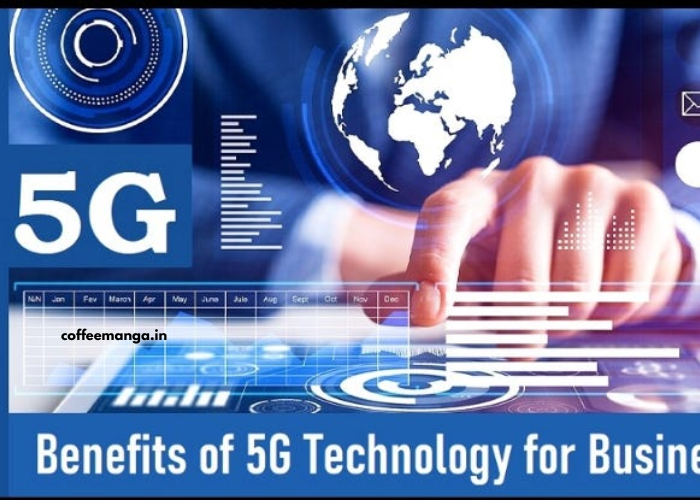The world of technology is advancing at an unprecedented pace, and 5G is one of the most significant innovations reshaping the global landscape. 5G, or fifth-generation mobile technology, promises to deliver faster speeds, lower latency, and more reliable connections compared to its predecessors. As industries, governments, and individuals eagerly await the widespread adoption of 5G, its potential impact is far-reaching, promising to revolutionize everything from communication to healthcare, transportation, entertainment, and beyond.
In this article, we’ll explore the future of 5G and its global impact, touching on key areas of transformation, challenges, and opportunities as the technology continues to evolve.
What is 5G?
Before diving into its global impact, it’s essential to understand what 5G is and how it differs from earlier generations of mobile technology.
5G is the fifth generation of cellular network technology, following 4G (LTE) and its predecessors. It is designed to provide faster internet speeds, lower latency (the delay before a transfer of data begins), and the ability to connect a significantly higher number of devices simultaneously. While 4G networks were designed primarily for smartphones and consumer devices, 5G is expected to support a wide range of applications and industries, including smart cities, autonomous vehicles, and the Internet of Things (IoT).
The primary features of 5G include:
- Faster Data Speeds: 5G is capable of speeds up to 100 times faster than 4G, allowing for seamless streaming, downloading, and gaming experiences.
- Low Latency: The reduction in latency (down to 1 millisecond) will allow for real-time communication, which is crucial for applications like remote surgery or autonomous vehicles.
- Massive Device Connectivity: 5G can support up to 1 million devices per square kilometer, making it ideal for IoT and smart cities.
With these capabilities, 5G is expected to have a profound impact on multiple sectors, ushering in a new era of technological innovation and connectivity.
The Global Impact of 5G Technology
1. Transforming Communication
One of the most immediate and noticeable effects of 5G will be on communication. With faster speeds, lower latency, and enhanced network reliability, 5G will revolutionize how we connect with each other. Whether it’s for personal communication, business collaboration, or remote work, 5G will create seamless, high-quality experiences.
Enhanced Video Calls and Virtual Reality (VR) Experiences
Video calls and online meetings have become the norm for both personal and business communication, especially in the wake of the COVID-19 pandemic. 5G will take these experiences to the next level by offering ultra-high-definition (UHD) video calling with virtually no lag or buffering. Additionally, 5G’s capabilities will allow for more immersive virtual reality and augmented reality (AR) experiences, which will be used in everything from gaming to virtual tourism and remote training.
Faster Internet Access for All
With 5G, internet access will become more equitable, especially in underserved or rural areas. The rollout of 5G can provide internet speeds that were previously only available in urban centers, helping bridge the digital divide. This will allow people in remote areas to access high-speed internet for education, business, and social connection, contributing to global digital inclusion.
2. Driving Innovation in Healthcare
The healthcare industry stands to benefit enormously from the deployment of 5G technology. With ultra-low latency and high data speeds, 5G will enable real-time communication and data sharing, improving the efficiency and quality of healthcare services.
Telemedicine and Remote Surgery
Telemedicine, already growing in popularity, will reach new heights with 5G. Doctors will be able to conduct remote consultations and even perform surgeries via robotic systems with minimal delay, enabling healthcare services to be delivered remotely to patients in rural or underserved regions.
Wearable Health Devices
5G’s ability to support the massive connectivity of devices makes it ideal for the development of advanced wearable health technologies. Devices that monitor everything from heart rate to blood pressure and glucose levels will be able to transmit data instantly to healthcare providers, leading to faster diagnoses and better patient outcomes.
AI and Big Data in Healthcare
5G will also accelerate the use of artificial intelligence (AI) and big data in healthcare. With the increased speed and capacity of 5G, large datasets can be transmitted and processed in real time, helping healthcare providers make data-driven decisions for better patient care. Additionally, AI algorithms will be able to analyze medical data faster and more accurately, leading to more personalized treatment options.
3. Revolutionizing Transportation and Smart Cities
5G will also play a critical role in transforming transportation systems and cities around the world. From autonomous vehicles to smart traffic management systems, the applications of 5G in this space are vast and varied.
Autonomous Vehicles
One of the most exciting prospects of 5G is its potential to enable fully autonomous vehicles. These vehicles rely on fast and accurate communication between sensors, other vehicles, and traffic infrastructure. 5G’s low latency will ensure that data is exchanged in real time, reducing the chances of accidents and improving the overall safety and efficiency of transportation systems.
Smart Cities
5G is a key enabler of the smart cities of the future. With the massive connectivity that 5G provides, entire cities can be transformed into interconnected ecosystems. Smart traffic management systems will optimize the flow of traffic, while intelligent streetlights can adjust to traffic conditions and weather patterns. Additionally, smart grids can help optimize energy consumption, leading to greener, more sustainable cities.
Drones and Delivery Services
The use of drones for delivery is rapidly gaining traction. However, for these systems to be reliable and safe, they need a fast, low-latency communication network. 5G will enable the widespread use of drones for everything from delivering packages to conducting surveillance and monitoring infrastructure.
4. Impact on Industries and the Economy
5G is expected to have a transformative impact on various industries, including manufacturing, retail, entertainment, and agriculture.
Manufacturing and Industry 4.0
In manufacturing, 5G will facilitate the widespread adoption of Industry 4.0, a new industrial revolution characterized by the integration of IoT, automation, and AI in production processes. 5G’s ability to connect thousands of devices simultaneously will enable smart factories where machines and robots communicate seamlessly to optimize production efficiency and reduce downtime.
Retail and E-commerce
5G will change the way consumers shop and interact with brands. Augmented reality shopping experiences, where customers can visualize products in their homes or try on clothes virtually, will become more prevalent. Additionally, faster internet speeds and more reliable connections will lead to better online shopping experiences, including real-time customer service and faster checkout processes.
Agriculture and Precision Farming
In agriculture, 5G will enable precision farming, where farmers use real-time data to monitor crops, optimize irrigation, and manage pest control. Sensors and drones connected via 5G will collect data on soil health, weather conditions, and crop growth, allowing for more efficient and sustainable farming practices.
5. The Challenges Ahead
Despite the tremendous potential of 5G, there are several challenges that must be addressed before its global impact can be fully realized.
Infrastructure Costs
The rollout of 5G will require significant investment in new infrastructure, including the installation of small cell towers and fiber-optic cables. While the benefits of 5G are immense, the costs involved in building the necessary infrastructure will require collaboration between governments, private companies, and telecom operators.
Regulatory and Security Concerns
As 5G will enable the connection of billions of devices, security becomes a major concern. Governments and businesses will need to invest in cybersecurity measures to protect critical infrastructure, data, and privacy. Additionally, international regulatory frameworks will need to be established to govern the global deployment of 5G technology.
Digital Divide
While 5G promises to improve internet access in underserved areas, there is also the risk that it could deepen the digital divide. Urban areas may receive faster access to 5G networks, leaving rural and developing regions behind. Ensuring equitable access to 5G will require targeted policies and investments in infrastructure in these areas.
The Future of 5G: What to Expect
As 5G continues to roll out across the globe, its impact will only grow. In the near future, we can expect the following trends:
- Widespread Adoption: More countries and regions will adopt 5G, with some expecting to have full nationwide coverage in the next few years.
- The Emergence of 6G: While 5G is still in its early stages, research is already underway into the next generation of mobile networks—6G. This will bring even faster speeds, lower latency, and more advanced features.
- Integration with AI and Automation: 5G will continue to be integrated with artificial intelligence (AI) and automation technologies, leading to the development of more intelligent systems across industries.
- Expansion of 5G-enabled Services: Industries such as healthcare, entertainment, and transportation will see the expansion of 5G-powered services, including remote surgeries, autonomous vehicle fleets, and immersive VR experiences.
Conclusion
The future of 5G is full of promise and potential. As this transformative technology continues to develop, its global impact will be profound, affecting industries, economies, and societies worldwide. From revolutionizing communication and healthcare to driving innovation in transportation and manufacturing, 5G will shape the future in ways that were once unimaginable.
However, the successful implementation of 5G will require overcoming several challenges, including infrastructure costs, security concerns, and ensuring equitable access across the globe. Despite these hurdles, the benefits of 5G are undeniable, and as the technology matures, it will undoubtedly unlock new possibilities for the digital age.





